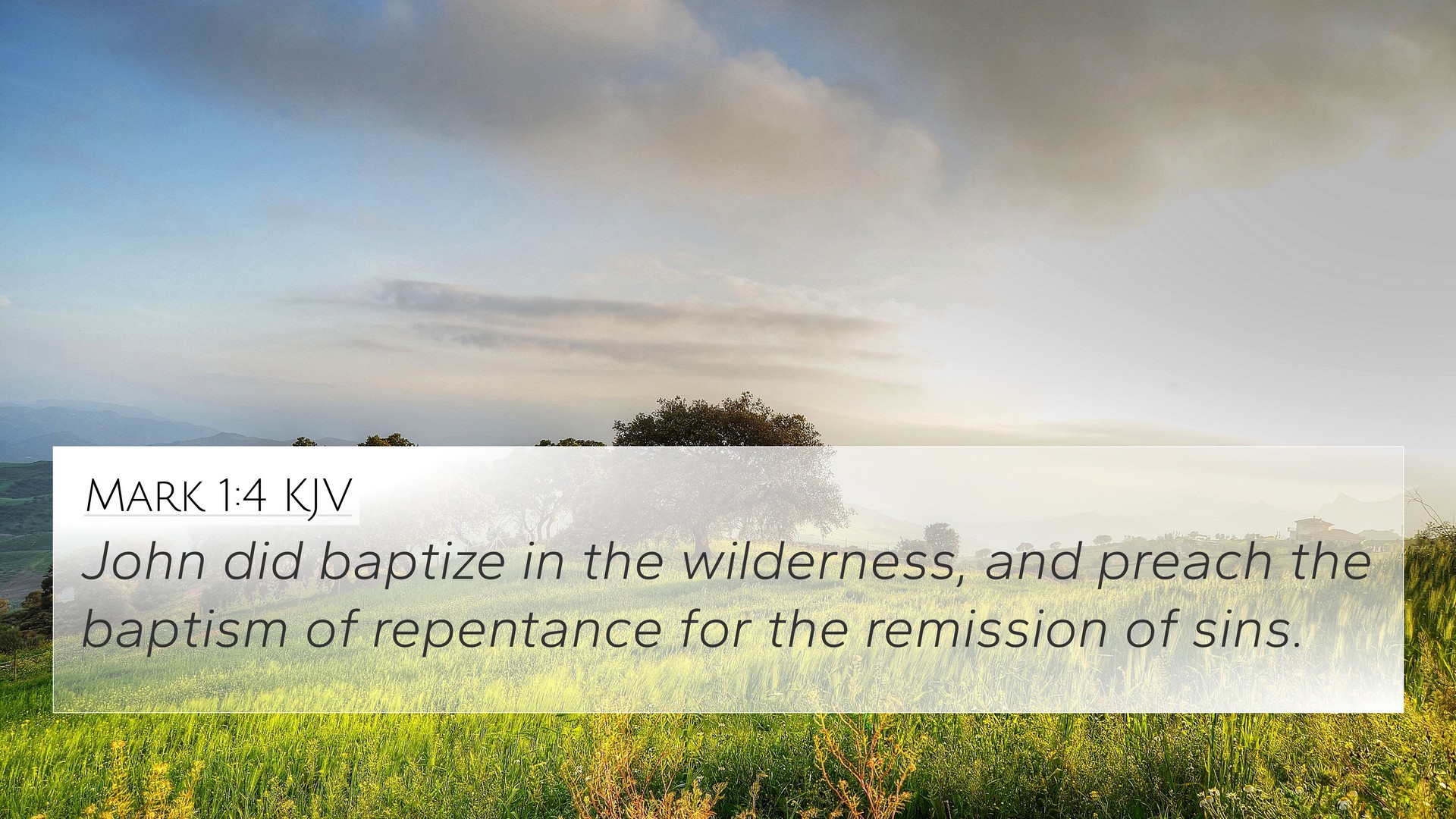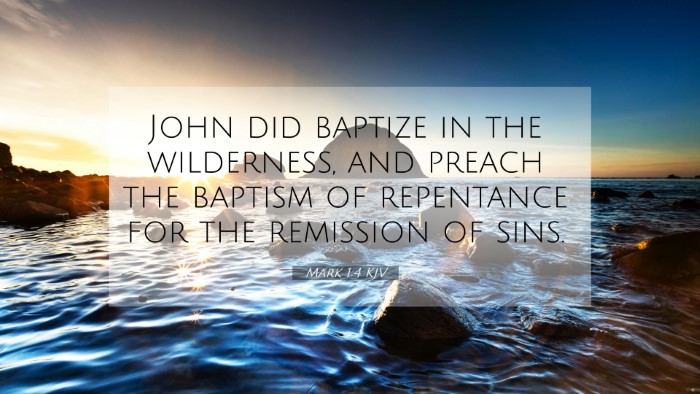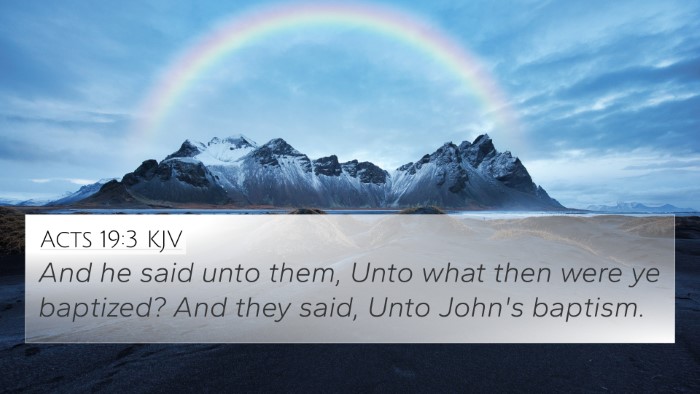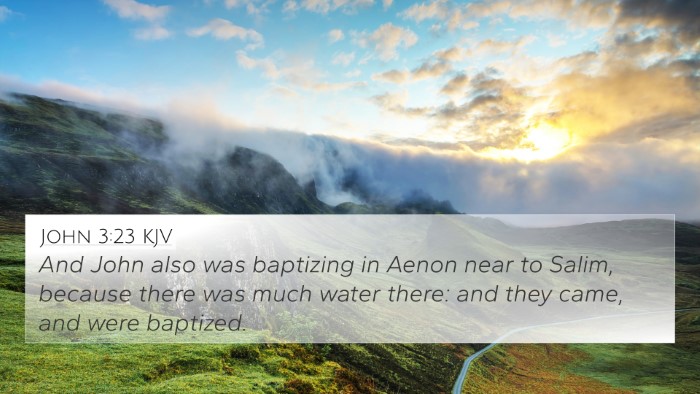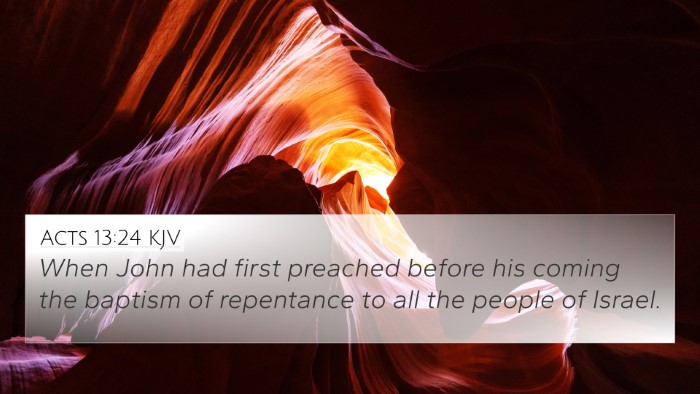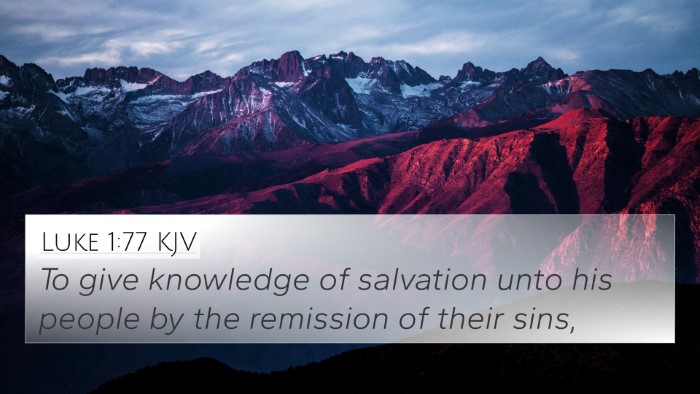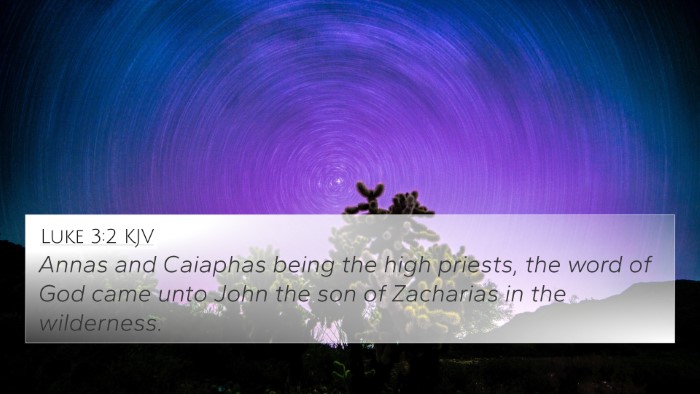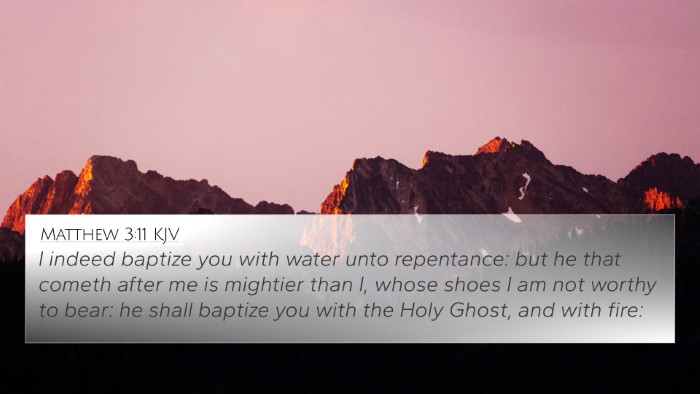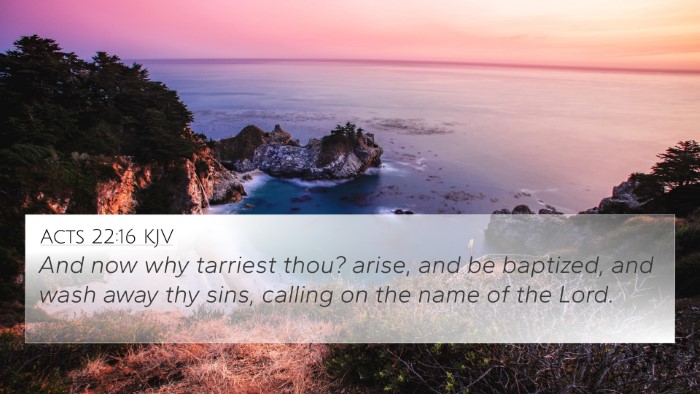Understanding Mark 1:4
Bible Verse: Mark 1:4 - "John did baptize in the wilderness, and preach the baptism of repentance for the remission of sins."
Context and Overview
In the Gospel of Mark, chapter 1, verse 4 introduces the ministry of John the Baptist, a pivotal figure in preparing the way for Jesus Christ. This verse succinctly summarizes John's work, emphasizing his role in the wilderness, his call to repentance, and the significance of baptism.
Key Themes and Insights
- Baptism: John’s baptism signifies not just a ritual washing but an inner change and commitment to turn away from sin.
- Repentance: Central to John’s message is a call to repentance, indicating a transformative change in individuals' hearts and lives.
- Preparation for Christ: John's ministry sets the stage for Jesus' arrival, fulfilling prophecies about the coming Messiah.
Commentary Insights
Matthew Henry: Henry elaborates on the necessity of repentance as a precursor to the acceptance of the Gospel. He emphasizes that John's baptism was not about the water but the spiritual awakening it represented.
Albert Barnes: Barnes notes the significance of the wilderness setting, suggesting it represents a place of both preparation and purification. He also discusses the importance of the remission of sins, underscoring the transformative power of repentance.
Adam Clarke: Clarke connects John's message with prophetic literature, referencing Isaiah and the call to prepare the way of the Lord. He highlights the broader context of Jewish purification rituals, situating John's baptism within a familiar religious practice while redefined in the light of repentance.
Cross References
This verse is foundational within the New Testament framework and connects deeply with other Scriptures. Here are some relevant cross-references:
- Matthew 3:1-2: John's preaching in the wilderness emphasizes the call to repentance.
- Luke 3:3: Similar to Mark, Luke describes John’s baptism as a baptism of repentance.
- Isaiah 40:3: A prophecy about a voice crying in the wilderness, confirming John's role as a forerunner to Christ.
- John 1:29: John the Baptist identifies Jesus as the Lamb of God, highlighting the purpose of his baptism.
- Acts 2:38: The call to repent and be baptized underlines the continuity of John's message in the apostles' teachings.
- Romans 2:4: God's kindness leads us toward repentance, paralleling John's message.
- 2 Corinthians 7:10: Describes godly sorrow that leads to repentance, vital to the understanding of John's baptism.
Thematic Connections
Mark 1:4 serves as a thematic bridge between several critical Biblical concepts:
- Repentance and Redemption: Connecting the need for repentance with the promise of forgiveness through Christ.
- Faith and Action: Discussing how true repentance leads to action, as exemplified by the baptism John performed.
- Prophetic Fulfillment: Illustrates how New Testament events fulfill Old Testament prophecies, establishing a cohesive narrative of redemption.
Conclusion
Mark 1:4 embodies the essence of John the Baptist’s ministry and serves a crucial role in the overarching narrative of the New Testament. By linking John’s baptism to themes of repentance, preparation, and messianic fulfillment, this verse not only highlights the significance of John's role but also invites readers to engage deeply with the concepts of spiritual renewal and transformation.
This verse and its implications encourage believers today to consider the connections between various scriptures and the profound themes of repentance and faith throughout the Bible. Utilizing tools for Bible cross-referencing can enhance understandings, allowing for deeper insights into the relationships and themes contained within the biblical text.
